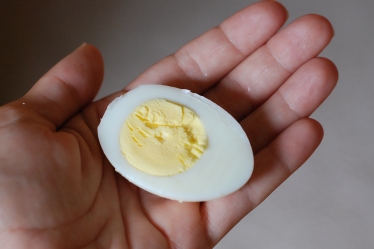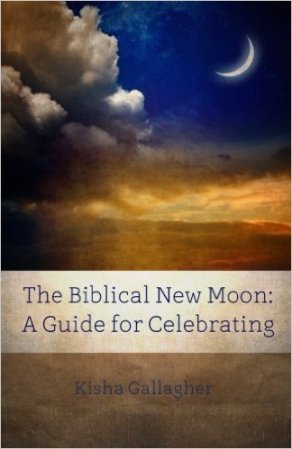The Spirit of Shavuot
After reading this past week’s Torah portion, B’midbar,[1] and celebrating the fourth Biblical festival of Shavuot (Pentecost), I began to think about our various “positions” before Adonai. The Mussar middah (character trait) humility has at its core the question of a person’s proper place. A balanced person neither thinks too highly of himself nor too lowly. Likewise, he or she doesn’t focus too much on self or on the faults of others. This sounds so simple, but the issue of humility is a great struggle for most of us. (Me included!)
 In parsha B’midbar, HaShem described not only the placement of each individual tribe as they camped, but also outlined the order in which they would travel and go to war. The tribal leaders were named and the duties of the priests for the movement of the Mishkan (Tabernacle) were established. Adonai is very specific and organized. There was no question as to one’s duty or placement in the body of Israel. Today, instead of knowing our place, we seem to be “all over the place” in both physicality and deed; each thinking his way, interpretation, or understanding is higher or better.
In parsha B’midbar, HaShem described not only the placement of each individual tribe as they camped, but also outlined the order in which they would travel and go to war. The tribal leaders were named and the duties of the priests for the movement of the Mishkan (Tabernacle) were established. Adonai is very specific and organized. There was no question as to one’s duty or placement in the body of Israel. Today, instead of knowing our place, we seem to be “all over the place” in both physicality and deed; each thinking his way, interpretation, or understanding is higher or better.
This creates confusion, not unity. Instead of being united like the believers at Shavuot in Acts Chapter 2, we seem to be more scattered and divided like they were after Messiah’s last Passover and subsequent crucifixion. Using this as a model, we know that Yeshua’s desire was for them to come back together as one people at Shavuot. This is why the risen Messiah told them during the days of the Omer count to go to Jerusalem and WAIT for the promise of being “clothed with power from on high.”
“And behold, I am sending forth the promise of My Father upon you; but you are to stay in the city until you are clothed with power from on high.” (Luke 24:49 NASB. See also Acts 1:4)
We all know what happened next.
And when the day of Pentecost was fully come, they were all with one accord in one place. (Acts 2:1 KJV)
When we fully come into the Spirit of Shavuot, we know our proper estate. Can you even imagine how glorious the unity of the people was? Look at what their actions produced; it’s eerily similar to when God spoke the Ten Words to the people standing at the base of Mt. Sinai at an earlier Shavuot:
And suddenly there came a sound from heaven as of a rushing mighty wind, and it filled all the house where they were sitting. (3) And there appeared unto them cloven tongues like as of fire, and it sat upon each of them. (4) And they were all filled with the Holy Ghost, and began to speak with other tongues, as the Spirit gave them utterance. (Acts 2:2-4 KJV)
So it came about on the third day, when it was morning, that there were thunder and lightning flashes and a thick cloud upon the mountain and a very loud trumpet sound, so that all the people who were in the camp trembled. (17) And Moses brought the people out of the camp to meet God, and they stood at the foot of the mountain. (18) Now Mount Sinai was all in smoke because the LORD descended upon it in fire; and its smoke ascended like the smoke of a furnace, and the whole mountain quaked violently. (19) When the sound of the trumpet grew louder and louder, Moses spoke and God answered him with thunder. (Ex. 19:16-19 NASB)
Adonai descended upon Mount Sinai in fire at the giving of the Ten Commandments and the people trembled. Later He descended in fire again, but this time, instead of manifesting on a mountain, the fire sat upon the people that had gathered at His Mountain (Zion). Like the mountain, the people were not consumed. In both cases, the Word of Adonai went forth like FIRE at the feast of Shavuot!
The people in each of the above examples were unified. I dare say that their theology was NOT what united them. It’s difficult to find two people that have the same opinion on any given matter. Jews have a saying to express this: “two Jews, three opinions.” So, what did unite the people? Or better yet, what CAN unify us?
The two most memorable Shavuot festivals have at their heart two great leaders. And there is one trait that both are said to possess that I find most fitting for us to focus on within the theme of unity. Moses is called the most humble man on earth.[2] Later, the one like unto Moses[3] is also called humble.[4] By following Moses’ and Yeshua’s example, it’s not our theology and opinions that binds us into one accord. Rather, it’s our willingness to “know our place” or live in a state of humility.
The Humility of Shavuot
“Always seek to learn wisdom from everyone, to recognize your failings and correct them. In doing so you will learn to stop thinking about your virtues and you will take your mind off your friend’s faults.” —Cheshbon ha-Nefesh by Rabbi Menachem Mendel of Satanov.
If there is one thing that I notice more than anything on television, the blogosphere, and social media, it is that our focus is continually on the faults of others. I see very little introspection and meekness. As Rabbi Menachem mentions in the above quote, it is by seeking to learn wisdom from EVERYONE that we are enabled to really see our own failings and correct them.
Everyone? Even the heathen, pagan, atheist, and cult follower? Most would squawk that these lost souls have no wisdom. Is this true? The last time I checked, they too were made in the image of God. While they may need redemption, they too, are a holy soul and Adonai cares greatly for them. Pride is what causes us to assume that we have nothing to learn from these precious ones.
But, this is also true of those that we interact with from the redeemed. Just because Joe Schmoe doesn’t think, believe, or act out his walk with the LORD exactly like you do, doesn’t mean that you are better than him or that he doesn’t have something to teach you. Again, it’s PRIDE that keeps us from gathering together. I’ll give you an example from my own life.
Years ago, I was part of a congregation in FL. The local Seventh-Day Adventist (SDA) church allowed us to meet in their building. I personally don’t think or believe like SDAs. Other than obeying the Sabbath, I thought I didn’t have much in common with these folks. One day, the SDA group asked us to join with them to break bread. To be honest, I didn’t really want to go. My prideful little self secretly thought, “What could they possibly teach me at this point?” I know you’ve never had a thought like that about a person or group, but I freely admit my debauchery to you anyway.
 Long story short, I went… begrudgingly. The meal was fine. It was more or less a communion service in their fellowship hall. Since I associate communion with Passover, I felt that the meal wasn’t quite “accurate.” (More pride.) Then, something odd happened. The people rose from their seats and began to break off for a foot washing ceremony. Without anyone leading, spontaneous songs and hymns began to flow from the lips of these people. A sweet Spirit entered our midst and I think my mouth hung open, lol.
Long story short, I went… begrudgingly. The meal was fine. It was more or less a communion service in their fellowship hall. Since I associate communion with Passover, I felt that the meal wasn’t quite “accurate.” (More pride.) Then, something odd happened. The people rose from their seats and began to break off for a foot washing ceremony. Without anyone leading, spontaneous songs and hymns began to flow from the lips of these people. A sweet Spirit entered our midst and I think my mouth hung open, lol.
Married couples went to one room. Singles of the same sex went off into two other areas (children included). A sink and a stack of basins were in each room for us to gather water. One spouse sat while fresh, warm water was poured over the other’s feet. Song and praise continued to flow throughout the building. It was one of the most touching experiences I’ve ever had in my life. The water was just water, but it felt like SO much more than that.
It was SO much more than that! Adonai humbled me in a way that day that I will NEVER forget. Washing someone else’s feet is the epitome of humility. But, I honestly believe it takes even MORE humility to have someone else wash YOUR feet.
Feet are the lowest part of our bodies. Since they are what touch the earth and because they are what carry our every weight and burden, they are likened to our nephesh (soul/flesh). They are our beast (of burden). And they get dirty. They, more than any other part of us, need frequent washings. You can walk around in the dirt all day and your hands can remain clean, but not your feet.
Some of you may know that I’m a licensed manicurist. I give pedicures (wash, clean, and manicure of the feet) all the time. I actually enjoy it. I consider it a privilege to care for a person in this way that is often difficult for them to do for themselves. But without soap, sweet ointments, or even toenail polish, the foot washing that I gave and received at that little SDA church has stood out as the best of the best.
Having my feet washed in the presence of Adonai and His people nearly overwhelmed me. The chip on my shoulder fell off the minute the water touched my toes. This is the Spirit of Shavuot. I wanted to separate myself out like the disciples did at Passover and Unleavened Bread, but Abba wanted me to humble myself and gather together with His people in one accord and one place.
Shavout isn’t about perfect doctrine or halachah. It is one of the pilgrimage feasts and as such, it is literally a FOOT festival. You must tame your feet and direct them to Jerusalem to receive the promise of the Father. The journey will make your feet both tired and dirty, but when you arrive, true disciples will be there with fresh water and songs of praise on their lips. Better yet, YOU will be there happy to wash the grime and mud off of your neighbor’s feet.
The heart of the commandments is LOVE. And there is no better way to express the love for your brother than to wash his feet. In a sense, this humble act says; let me wash the dirt from your lower nature. I know walking through life gets your soul muddy. I understand. I too, have a dirty nephesh. Let me refresh you. Allow me to care for you by meeting a need we all share regardless of our theology or lack thereof. I love you anyway. Let me learn something from you. You matter to me.
If we think about Moses and Yeshua, didn’t they do exactly this? Both dealt with imperfect and challenging people. Both humbled themselves and SERVED the people. They knew their place. Instead of calling fire down from heaven to destroy those with dirty feet, they tenderly washed the people.[5] The result was a fiery Word in the mouth of Israel.
Since Shavuot is about the Bride receiving her ketubah (Torah Covenant) and the empowerment of the Holy Spirit, I thought it would be fitting to conclude with the words of Abigail, a bride of King David. Let’s see what wisdom this model bride can teach us:
 When the servants of David came to Abigail at Carmel, they spoke to her, saying, “David has sent us to you to take you as his wife.” She arose and bowed with her face to the ground and said, “Behold, your maidservant is a maid to wash the feet of my lord’s servants.” (1Sam. 25:40-41)
When the servants of David came to Abigail at Carmel, they spoke to her, saying, “David has sent us to you to take you as his wife.” She arose and bowed with her face to the ground and said, “Behold, your maidservant is a maid to wash the feet of my lord’s servants.” (1Sam. 25:40-41)
Abigail was a humble bride; one any king would desire. She proved this through the selfless action of foot washing. Shavuot beckons us to ask: “What do I do with the feet of those I encounter? Do I step on their toes? Do I turn my nose up at their grime? Or do I bow down low and tenderly wash them clean?” May we become a maidservant like Abigail. When the King comes to take us as His Bride, may we know our place as ones who wash the feet of His servants!
[1] Numbers 1:1- 4:20. B’midbar literally means “in the wilderness”.
[2] Now the man Moses was very humble, more than any man who was on the face of the earth. (Num. 12:3)
[3] “The LORD your God will raise up for you a prophet like me [Moses] from among you, from your countrymen, you shall listen to him.” (Dt. 18:15)
[4] “Take My yoke upon you and learn from Me, for I am gentle and humble in heart, and YOU WILL FIND REST FOR YOUR SOULS. “For My yoke is easy and My burden is light.” (Mat. 11:29-30)
[5] Ex. 19:10-11; John 13:5-13







